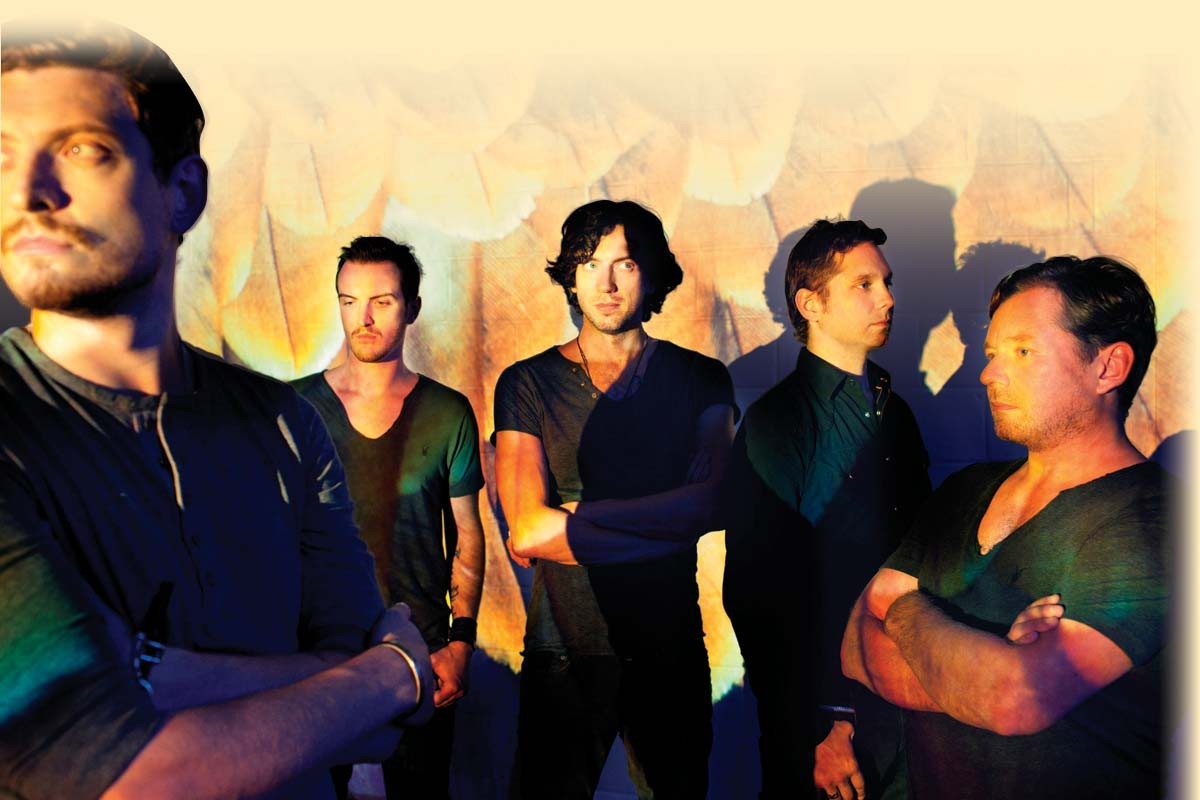INTERVIEW: Snow Patrol battles to smash image as balladeers

Snow Patrol, Courtesy.
Snow Patrol is still best known in the U.S. for “Chasing Cars,” which played over a tearjerker moment on “Grey’s Anatomy” a half-decade ago.
That’s why the Irish-Scottish band made a purposeful attempt to prove Gary Lightbody and co. can create more than the masterful ballad on their newest release, Fallen Empires. And that’s partly the reason they invited two choirs, string and horn sections, and cameos from Michael Stipe, Queens of the Stone Age guitarist Troy Van Leeuwen and American folkie Lissie to help out.
“We suffered from ‘Chasing Cars’ being such a big hit that I think that people that came to the gigs were quite shocked that we’re quite a rockin’ band live; there’s not just ballads,” drummer Jonny Quinn said in a recent conversation from Boston, where Snow Patrol were in the midst of a tour that stops with two shows at the Fox Theater in Oakland this week. “We also love a lot of dance music: electro, house, hip hop. We DJ. We like to play with drum machines.”
The quintet, which includes guitarist Nathan Connolly, bassist Paul Wilson and keyboardist Tom Simpson, didn’t want to rest on its laurels because it has more to prove, Quinn said.
“There’s definitely more to do,” he said.
The inception of Snow Patrol’s sixth album began in late fall 2010 with a thud: Singer-guitarist Lightbody suffering from writer’s block for the first time.
“He’s always been really prolific, and this time he couldn’t find any words,” Quinn said. “The harder he tried, the harder it got.”
The band previously wrote and recorded albums within a few months. Fallen Empires ended up taking more than a year.
The first mistake, Quinn said, was creating a deadline to finish the album. The band gave itself until March 2011. In October 2010, Lightbody was already struggling to come up with lyrics, when the rest of the band drove out into the southern California desert to record demos at Rancho De La Luna Studios, where Queens of the Stone Age and the Arctic Monkeys had recorded recently.
“We kind of left Gary to get lyrics on his own at that point,” Quinn said. The rest of the band needed some inspiration as well. “(It was an) experience that was just far away from what we were used to.”
During the day, the band worked on recordings, was pampered by on-site chefs at the studio, and went exploring in the desert.
“It was like a Salvador Dali painting, seeing the rocks melt into the ground like that,” Quinn said. At night they would watch the stars and jam with guitars and mandolins.
There was no magical breakthrough, but the song that eventually helped Snow Patrol bust out of its slump was the synthy album opener “I’ll Never Let Go.” This is the kind of upbeat, electronic tune this band is not known for. While record label managers began to wonder how long it would take and when Snow Patrol would be ready to tour, the band members began to pick up steam.
“I suppose it was just taking it one step at a time and just not picking a deadline,” Quinn said.
Fallen Empires is evenly split between the uptempo, electronic sound of the band’s new direction and the ballads that initially drew fans. “Called Out in the Dark” evokes Flock-era Bell X1, another Irish band.
Quinn said the main theme of the album is remembrance: “Where we come from and where we’ve gone to and sort of remembering that family is important.”
RELATED STORIES:
• ALBUM REVIEW: Snow Patrol forges ahead on ‘The Forest is the Path’
• ALBUM REVIEW: Snow Patrol impresses with gorgeously visceral ‘Wildness’
“The Garden Rules,” a ballad layered with strings, horns, piano and choirs, is about the innocence of being a child. Lightbody wrote “New York” about the missed opportunities of a relationship that didn’t work out. Many of the lyrics reflect not just Lightbody’s memories but also those of the others, Quinn said.
When it came time to record and produce the album, the band brought in frequent producer/contributor Garrett “Jackknife” Lee, who moved the band members into a Los Angeles studio; it was their first time recording in a sunlit locale. Quinn said that contributed to the positive vibe of the album. That’s when the extra production elements were added: one Lissie vocal, choir and string section swelling at a time.
“We wanted to give the album some really strong flavors (because) we were just in a really sunny place,” Quinn said.
Follow editor Roman Gokhman at Twitter.com/RomiTheWriter.
